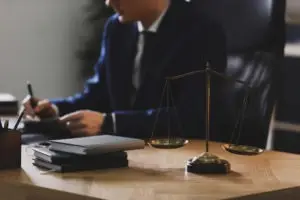
If you are ever arrested for committing a crime in the state of California, you should enlist the services of a knowledgeable criminal defense lawyer. While you can expect your attorney to fill you in on relevant state and federal laws, you may still familiarize yourself with the legal process. One especially important aspect you should know about is attorney-client privilege.
The California statute Evidence Code 954 is what ensures confidentiality between lawyers and their clients. Your attorney may not disclose privileged communications. There are a few notable exceptions when attorney-client privilege does not apply.
What Is Covered by the Attorney-Client Privilege in California?
Attorney-client privilege, also known as lawyer-client privilege, is an essential part of the legal system. To build the strongest case, your lawyer must have all the information available. For you to tell the truth about your case, you need to know you can trust your lawyer to protect your best interests.
Under Evidence Code 954, clients do not have to disclose confidential information shared with legal advocates within the attorney-client relationship. Clients can also request for their lawyers not to divulge these communications. California attorneys must also decline third-party requests to disclose client-attorney communications, citing attorney-client privilege.
Specifically, the attorney-client privilege applies to information shared in these specific parameters:
- An attorney works in a legal capacity
- A client requests legal advice from a lawyer with the expectation of confidentiality
- A lawyer requests information from their client to provide legal advice
- The attorney’s legal advice given to the client
Even under these circumstances, there are exceptions when lawyers in California cannot legally maintain confidentiality.
For a free legal consultation, call (310) 896-2723
Is Anything You Say Considered Attorney-Client Privilege in California?
Your lawyer cannot use attorney-client privilege to hide information that looks bad for your case. Providing potentially incriminating evidence to your attorney does not mean that it will remain confidential. However, if you candidly discuss this evidence with your lawyer, the attorney-client privilege will ensure that communication remains private.
How Long Does Attorney-Client Privilege Last in California?
In California, privileged information between attorneys and their clients remains confidential after the case ends. An attorney may never share protected information without a client’s consent. Even if a client dies, this information may not be disclosed.
What Is Not Covered by Attorney-Client Privilege?
Perhaps the most important thing to know about attorney-client privilege, is that not all communications are protected. Attorney-client privilege is subject to a crime-fraud exception. If you communicate intentions to commit or cover up crime or fraud, your lawyer is not legally required to keep this information secret.
When the crime-fraud exception is in effect, a prosecutor may subpoena an attorney and demand the contents of communications not protected by the attorney-client privilege.
Mandatory Disclosure
Attorneys in California are ethically required to divulge communications under certain circumstances. A lawyer must disclose information related to these situations or face penalties up to criminal charges:
- Missing person cases
- Crucial evidence
- Perjury
- Criminal threats
Complete a Free Case Evaluation form now
Can the Attorney-Client Privilege Be Waived in California?
Attorney-client privilege can be easily waived. If a lawyer’s client chooses to divulge privileged information to a third party, attorney-client privilege may be considered waived.
Another way that you may accidentally waive privilege is during discovery. At this stage of litigation, opposing parties exchange information, typically involving a plethora of documents. If you accidentally share privileged information, Federal Rules of Evidence, Rule 502(d) provides a course of action to remedy the situation.
Call or text (310) 896-2723 or complete a Free Case Evaluation form
